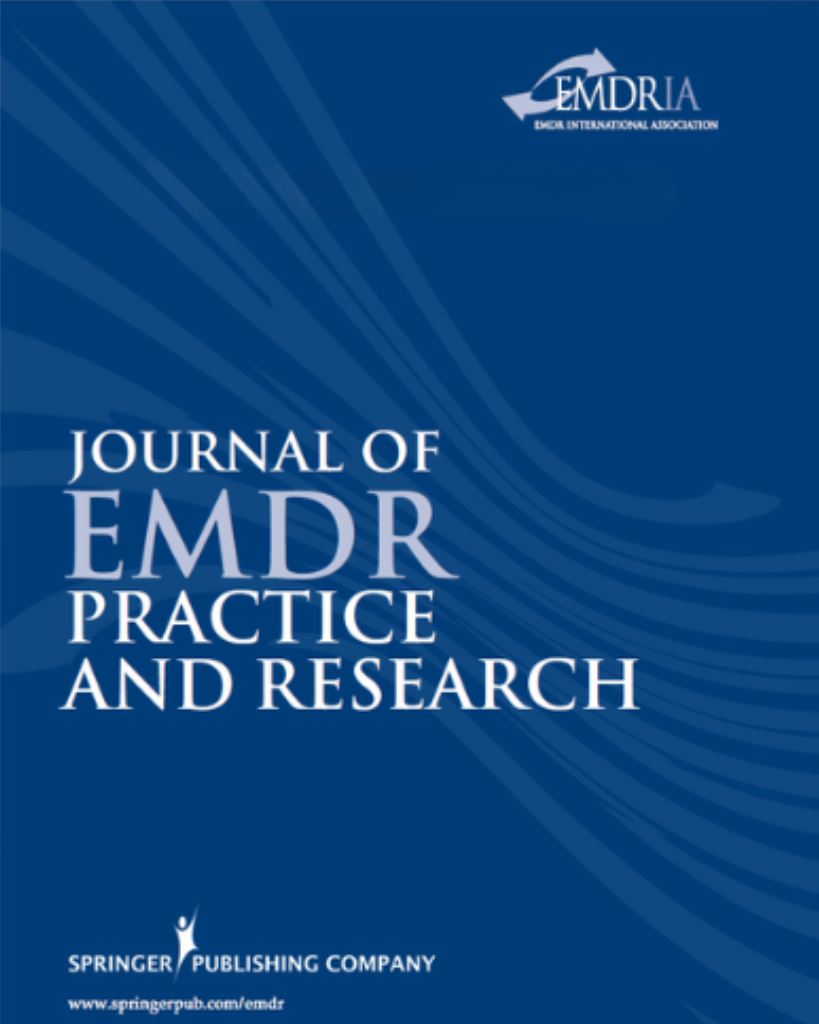Eye movement during recall reduces objective memory performance: An extended replication
Together, the findings suggest that the eye movement manipulation renders stimulus attributes less accessible for future recall.
Article Abstract
“Eye Movement Desensitization and Reprocessing (EMDR) therapy for posttraumatic stress disorder involves making eye movements (EMs) during recall of a traumatic image. Experimental studies have shown that the dual task decreases self-reported memory vividness and emotionality. However valuable, these data are prone to demand effects and little can be inferred about the mechanism(s) underlying the observed effects. The current research aimed to fill this lacuna by providing two objective tests of memory performance. Experiment I involved a stimulus discrimination task. Findings were that EM during stimulus recall not only reduces self-reported memory vividness, but also slows down reaction time in a task that requires participants to discriminate the stimulus from perceptually similar stimuli. Experiment II involved a fear conditioning paradigm. It was shown that EM during recall of a threatening stimulus intensifies fearful responding to a perceptually similar yet non-threat-related stimulus, as evidenced by increases in danger expectancies and skin conductance responses. The latter result was not corroborated by startle EMG data. Together, the findings suggest that the EM manipulation renders stimulus attributes less accessible for future recall.
Highlights
- Eye movement during recall reduces subjective memory vividness and emotionality.
- Two experiments examined whether eye movement affects objective memory performance.
- Eye movement increases response latencies in a stimulus discrimination task.
- Eye movement increases generalized responding in a fear conditioning paradigm.
- Findings suggest that eye movement renders stimulus attributes less accessible.”
—Description from publisher
Article Access
Purchase/Subscription Required
Leer, A., Engelhard, I. M., Lenaert, B., Struyf, D., Vervliet, B., & Hermans, D. (2017). Eye movement during recall reduces objective memory performance: An extended replication. Behaviour Research and Therapy, 92, 94-105. https://doi.org/10.1016/j.brat.2017.03.002
Date
May 1, 2007
Creator(s)
Arne Leer, Iris M Engelhard, Bert Lenaert
Contributor(s)
Dieter Struyf, Bram Vervliet, Dirk Hermans
Practice & Methods
Mechanisms of Action
Extent
12 pages
Publisher
Elsevier
Rights
Copyright © 2017 Elsevier Ltd. All rights reserved.
APA Citation
Leer, A., Engelhard, I. M., Lenaert, B., Struyf, D., Vervliet, B., & Hermans, D. (2017). Eye movement during recall reduces objective memory performance: An extended replication. Behaviour Research and Therapy, 92, 94-105. https://doi.org/10.1016/j.brat.2017.03.002
Audience
EMDR Therapists, Other Mental Health Professionals
Language
English
Content Type
Article, Peer-Reviewed
Access Type
External Resource





